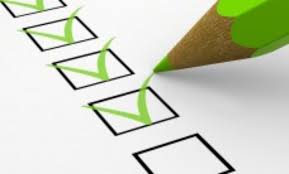LRN’s 2021 Ethics and Compliance Report — the Impact of COVID-19

LRN’s annual Ethics and Compliance Program Effectiveness Report is an important yearly event. The report is often filled with important trends and observations. For compliance officers, there is always important trends and information to review.
As we know, however, 2021 was no ordinary year. Instead, for many companies, the challenges of COVID-19 split the year into two – and LRN has followed suit. Its first report, which was recently released, assessed ethics and compliance program performance in the COVID-19 environment, when companies were tested (like our country) by the COVID-19 pandemic. LRN plans to issue a second report relating to program performance later this year.
COVID-19 was an unusual crisis (to say the least) and it is fair to guess that companies faced unprecedented challenges. Of course, COVID-19 tested corporate crisis management plans. But even more so, COVID-19 was a crisis stress test on a company’s culture, values and ethics and compliance program.
LRN conducted a survey of 650 ethics, compliance and legal professionals employed by global companies. And the results were positive with a number of key observations.
Two significant findings:
- 79 percent of those surveyed reported that their organizations’ ethical culture emerged stronger through their efforts to cope with the COVID-19 crisis; and
- 82 percent of respondents stated they emphasized values rather than compliance rules and procedures to motivate employees to do the right thing.
With respect to ethics and compliance programs, LRN noted the following findings:
- 80 percent of respondents noted that their ethics and compliance programs played a significant role in shaping their response to the COVID-19 crisis; and
- 71 percent reported that senior leaders integrated ethics and compliance issues into their decision-making process.
LRN noted a number of findings that corporate boards and senior leadership “stepped up” to the challenges their organizations faced during the COVID-19 pandemic. Overall, corporations’ ethical cultures and frameworks were resilient and supported efforts by key stakeholders to adapt to the challenges posed by the pandemic.

While ethics and culture were tested and appeared to perform well, the picture was not so bright for ethics and compliance programs, meaning the policies and procedures and controls guiding the organization’s conduct.
LRN listed several key findings indicating the challenges that ethics and compliance programs experienced during the pandemic:
- 40 percent of respondents reported that their firms simplified or modified compliance procedures to meet the new business challenges;
- 45 percent indicated that their ethics and compliance team, in response to the pandemic, strengthened risk controls in critical areas like cybersecurity, privacy and donations of critical equipment; and
- 48 percent reported that the ethics and compliance team offered greater assistance with employee concerns, like expanding the helpline.

LRN also found that most ethics and compliance programs did not pivot quickly in response to the pandemic, the change in working conditions, and the overall impact of the pandemic.
- 24 percent reported that their firm’s ethics and compliance program responded to pandemic conditions by using mobile devices to deliver training;
- 36 percent stated their program began using shorter, more targeted training courses or videos;
- 47 percent indicated that their programs revised training schedules and the rollout of training curriculum; and
- 42 percent stated customized training and communication were implemented to address COVID-19 issues.
Many compliance and legal professionals who responded specifically noted that the pandemic was likely to have a continuing negative impact on their compliance program, citing the difficulty to conduct remote internal investigations, the increase in misconduct linked to remote work arrangements, their expectation that ethics and compliance oversight and monitoring efforts will be less effective and the pressure to relax risk-mitigation procedures as business resumes.















